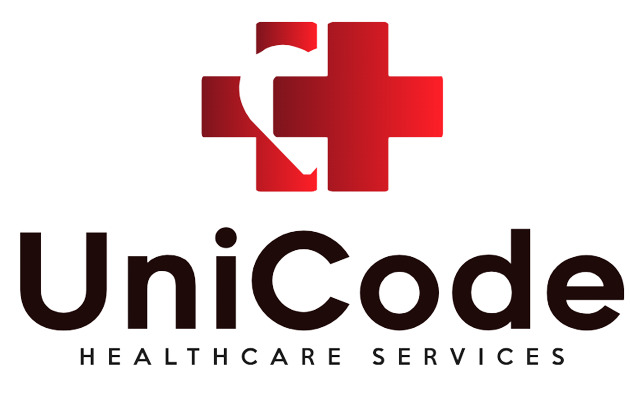How AI Is Transforming Medical Coding: Benefits, Challenges, and Real-World Impact
How AI Is Transforming Medical Coding: Benefits, Challenges, and Real-World Impact How AI Is Revolutionizing Medical Coding: Advantages, Challenges, and Real-World Impact in 2025 Medical coding plays a vital role in the healthcare revenue cycle by converting clinical documentation into standardized codes used for billing, reporting, and analytics. With rapid technological growth, AI-powered coding tools are now transforming traditional workflows—bringing new opportunities as well as concerns for coding professionals. Although AI promises faster processes and enhanced accuracy, it also introduces certain limitations that coders must understand. This guide explores the real benefits and drawbacks of AI-assisted medical coding tools in 2025 and offers insights on how coders can thrive in this evolving landscape. What Are AI-Assisted Medical Coding Tools? AI-assisted coding tools are advanced software solutions that use artificial intelligence (AI), machine learning (ML), and natural language processing (NLP) to interpret clinical documentation and suggest appropriate ICD-10, CPT, and HCPCS codes. These tools are integrated into Electronic Health Records (EHRs) or used as standalone coding platforms. Well-known AI-based coding tools include: 3M™ CodeFinder Optum360 EncoderPro Cerner AI Coding Suite Nuance CDE One These platforms help coders by analyzing physician notes, lab results, and clinical summaries to recommend highly accurate and relevant codes. Top Benefits of Using AI in Medical Coding 1. Faster Turnaround Time & Higher Efficiency AI can process and analyze documentation much faster than manual coding. Tasks that typically take several minutes can be completed in seconds—helping healthcare organizations handle large volumes without delays. 2. Enhanced Accuracy AI reduces human error by identifying coding patterns and ensuring consistency. When trained on large datasets, it can improve the overall quality of coding, supporting better compliance and reimbursement outcomes. 3. Reduced Manual Workload Repetitive and straightforward cases, such as routine visits or lab procedures, can be automated with AI. This allows coders to focus their expertise on complex cases that require human interpretation. 4. Seamless Compliance With Code Updates AI tools can be updated in real-time to reflect annual ICD-10 and CPT code changes. This ensures coders stay compliant without constantly memorizing new updates. 5. Analytics & Documentation Insights Modern AI tools offer dashboards and error-trend analytics. They highlight frequently missed codes, documentation gaps, or denial trends—benefitting CDI teams and improving overall accuracy. Challenges & Limitations of AI in Medical Coding 1. Limited Clinical Understanding AI may misinterpret complicated medical narratives or overlapping conditions. Human coders bring clinical reasoning and judgment that AI still cannot replicate fully. 2. Reliance on Documentation Quality If the provider’s documentation is vague or incomplete, AI will generate incorrect or non-specific codes. This leads to claim denials and compliance issues. 3. Risk of Blind Dependency Some coders may begin relying heavily on AI suggestions. Without human verification, errors may go unnoticed, affecting coding accuracy and revenue integrity. 4. High Setup and Implementation Costs AI solutions involve significant investment—licensing, integration, training, and continuous updates. Small clinics and educational institutes may find the cost challenging. 5. Data Privacy & Security Risks Since AI tools access sensitive patient data, strong cybersecurity and HIPAA compliance are mandatory. Cloud-based systems are especially vulnerable if not properly secured. The Future: Human Coders and AI Working Together Despite common fears, AI is not replacing coders anytime soon. Instead, the future of medical coding lies in collaboration: AI handles routine volume work Human coders validate complex cases and exceptions Auditors and CDI specialists oversee quality and compliance This hybrid model enhances productivity and opens new avenues for coders to specialize in auditing, DRG coding, CDI, and advanced RCM roles. How Coders Can Prepare for the AI-Driven Future Learn the Basics of AI: Understand how these tools work and how to evaluate their suggestions. Upgrade Your Skills: Stay certified with CPC, CCS, or specialty credentials to remain competitive. Strengthen Documentation Knowledge: CDI skills ensure coders stay essential despite automation. Choose AI-Friendly Training Institutes: Opt for institutes that offer exposure to real-time coding tools and advanced workflows. Institutes like Unicode Healthcare Services prepare students for both traditional CPC exams and future-focused AI-enabled coding environments. Conclusion: AI Is a Powerful Assistant — Not a Replacement AI-assisted coding tools are rapidly changing the landscape of medical coding, but they cannot replace the expertise and judgment of human coders. The most effective approach combines AI’s speed with human accuracy and decision-making. For medical coders, 2025 presents enormous opportunities—not threats. By upgrading your skills and embracing AI, you can lead confidently in a hybrid healthcare future shaped by technology and human expertise.
